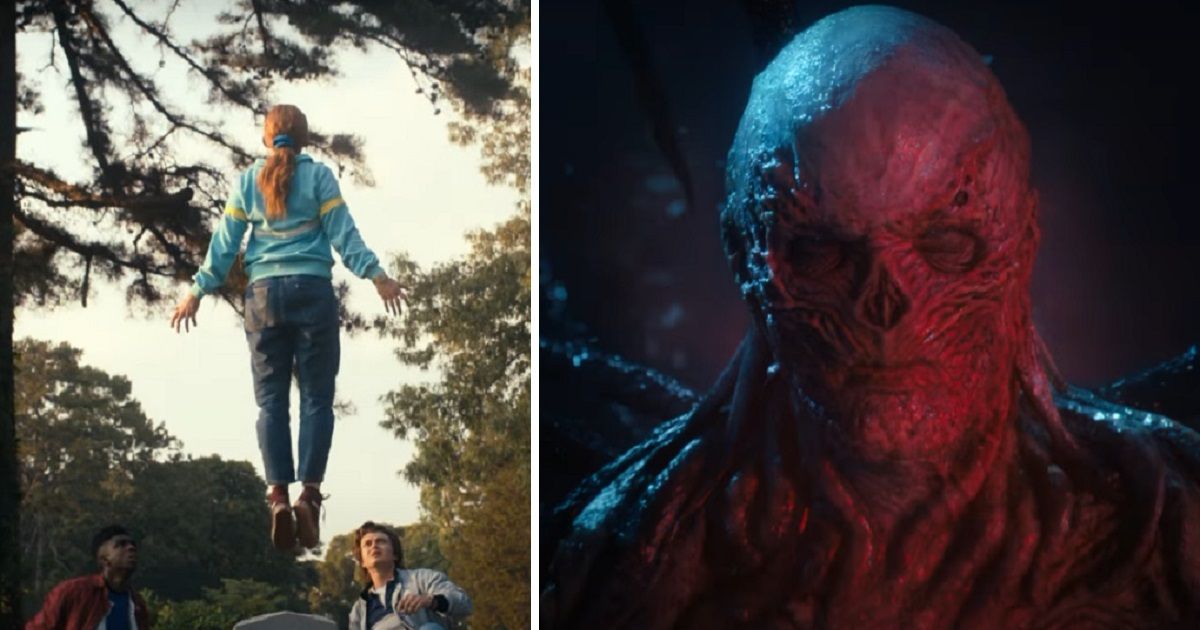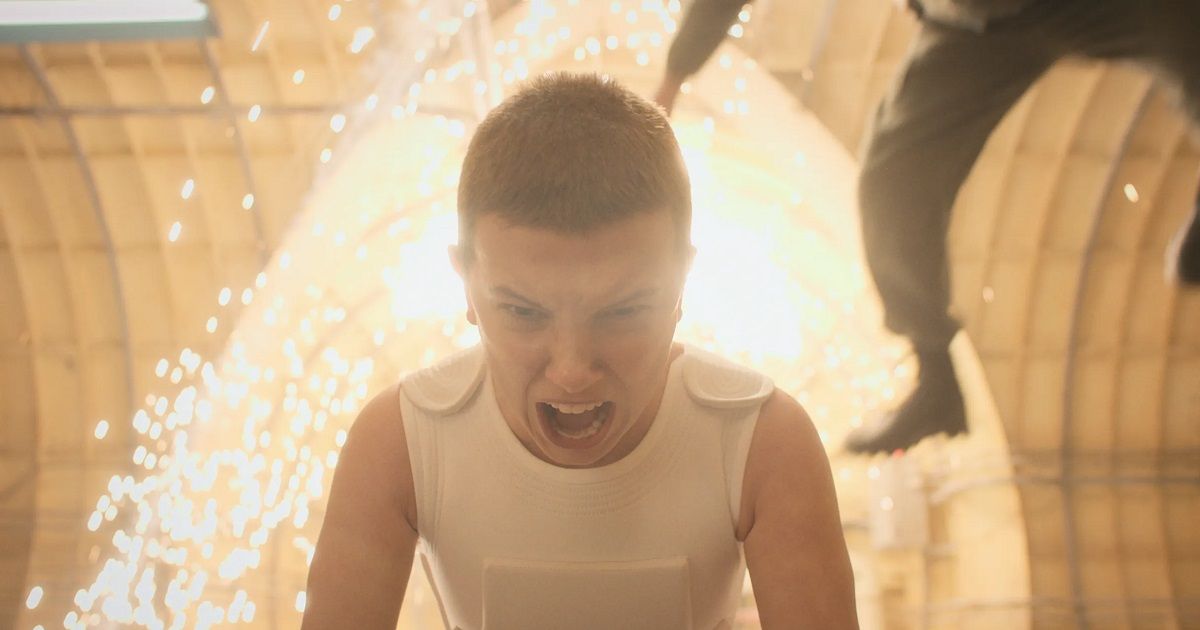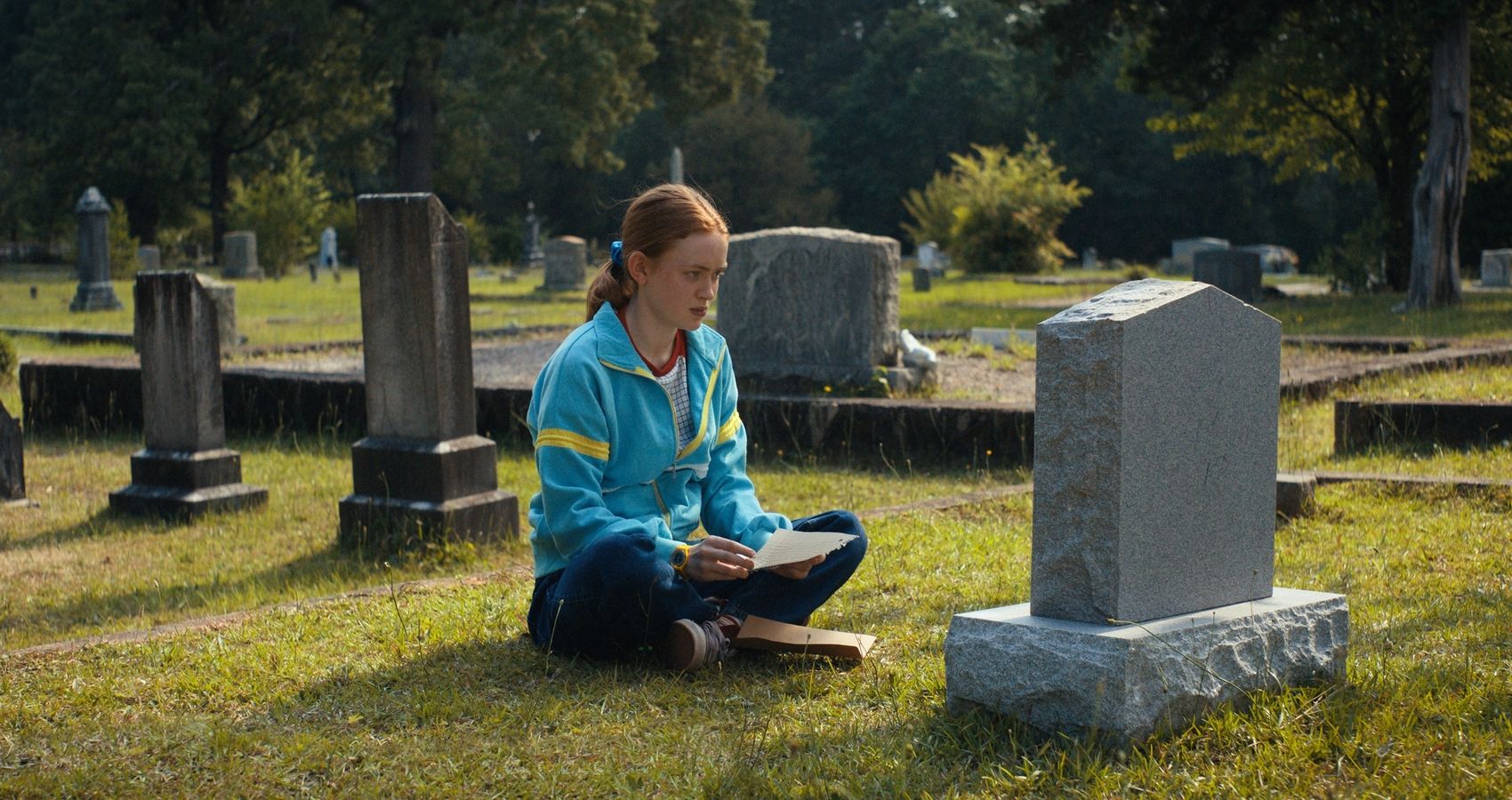Spoiler Warning: Stranger Things Season 4 Vol. 1
Stranger Things season 4 has set multiple records for viewership in a very short period of time, with ratings and numbers rivaling Disney Plus' groundbreaking Obi-Wan Kenobi. The show's critical reception has been on par with the long-hailed season 2 of the series, totaling up well above season 3. It seems that fans everywhere are absolutely enamored with the show's horror elements, such as its jaw-dropping violence, gore, and deeply disturbing narrative content, as well as its ruthless emotional drama and menacing forebodings for characters' futures.
It was well-publicized that Netflix felt a warning before Stranger Things was necessary after the horrific Texas school shooting that shook the world, and not two minutes into the first episode, it is very clear why. The opening scene of the long-awaited series graphically depicts dozens of massacred children at the Hawkins lab, apparently at the hands of a fellow patient, captive, and child Eleven (Millie Bobby Brown). By the end of the series, it is revealed, not too surprisingly, that it was not Eleven, but her higher-ranking counterpart, who is also a juvenile.
A child slaughtering other children is about as dark as it gets, particularly for a television series that used to be about the bonds of childhood friendships, first loves, and the devotion of dedicated parents that mostly hinted at much darker subjects. Current events also don't help to cushion the blow of familiarity that this story evokes. Few have failed to notice this dramatic shift in priorities in Stranger Things, but almost none have expressed any issue with it. But is there anything about this season of Stranger Things that should have given us pause, even if it hasn't just yet?
What's So Shocking About Stranger Things Season 4?
It could be said that many of the show's long-running and more qualitative character arcs have taken a back seat to the arresting, gritty visuals. In the first episode, Eddie Munson (Joseph Quinn), the show's most recent breakout character in a line of lovable and captivating males and the internet's most charming new boyfriend, is bonding with the apparently ill-fated prom queen Chrissy (Grace Van Die). Suddenly, she is brutally murdered in a way that a viewer wouldn't balk at if they were watching Evil Dead but definitely was not expecting to see on the broadly viewed and thoroughly mainstream fantasy series Stranger Things.
Substance is quickly replaced by gore, which isn't necessarily an issue since the show already has so many well-established character backstories and connections. We certainly can't say that stories like Max's (Sadie Sink) were given an impersonal treatment, as her triumphant running scene to Kate Bush, though pockmarked by threats and depictions of gruesome monsters and imminent death, was the height of character development and will be remembered, rightfully so, for many generations to come.
The most difficult part of Stranger Things season 4 to watch is Eleven once again falling victim to her abusers at the Hawkins lab, even having her head reshaven. All her progress and freedom have been forced away from her, so she can "become a superhero," or the part of herself she thinks is the most valuable, again. It's almost guaranteed she will come full circle, realizing that, regardless of her telekinetic powers, she has strength and abilities all her own. No matter what happens, no one can ever take away her value, but that doesn't mean it isn't almost certainly difficult for female viewers to watch this empowering role model return to the clutches of her male oppressors.
This could be a powerful journey for us to behold as viewers, watching Eleven confront her past and embrace herself for all she is. Still, she hasn't been able to achieve these milestones on her own terms thus far, and the fact she has been betrayed and bamboozled by her worst enemy, drugged, tortured, and nearly killed already, is challenging and damaging to watch. It is possible that, for many viewers, particularly women viewers, the symbolisms of oppression, mental, emotional, and physical, could be too much and unexpected for a show that was formerly widely palatable and that no one expected to go quite this hard-core.
What Could Change When Season 4 Vol. 2 Is Released?
Stranger Things has given us culturally defining moments, ranging from powerful to hilarious and iconic to stratospherically generation-defining. At this stage in the game, it makes sense that they are turning toward committing to a gruesome genre and shock value to keep the story fresh and impactful. Still, that doesn't mean some viewers won't need to turn away from its more upsetting developments. Some have pointed out that the show used to be a Goonies-style, '80s nostalgia dream hearkening back to the memories of childhood innocence, friendships, and togetherness many of us can easily relate to. In contrast, it now focuses on more shocking, disturbing imagery and threats.
Though most have fully embraced the show's changes, its biggest new plot lines are still eligible for questioning based on objective, ultra-considerate criteria. Ultimately, however, this season is difficult to judge because it all depends on what happens next. Hesitation on the part of any viewers could simply be due to the two-part release of the season, which ensures that the full arc of the show has gone untold for a chunk of time.
We haven't seen the end of this extensive season yet, and won't for almost another month. Will Steve meet his demise? Will Eleven escape the confines of her lifelong abuser? The answers to these questions will do much to calm any anxiety some viewers may feel about the show's distinctive choices.



